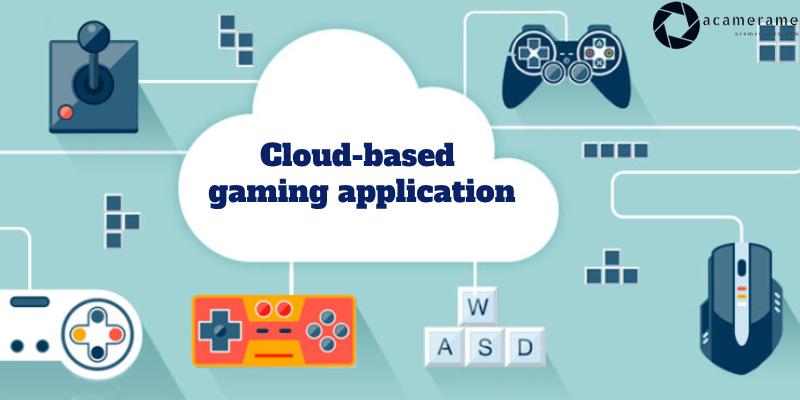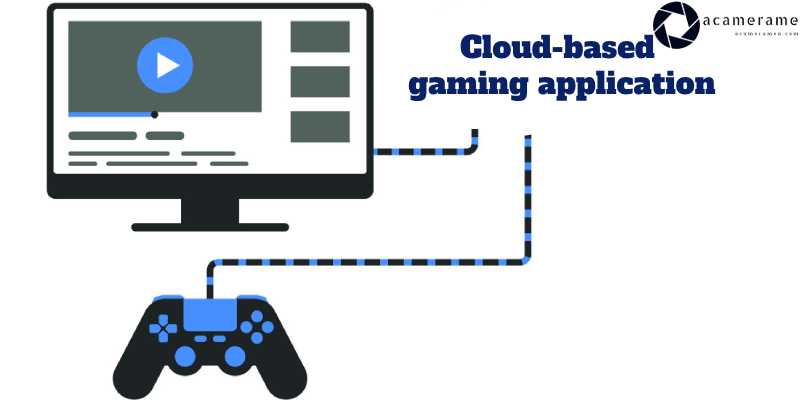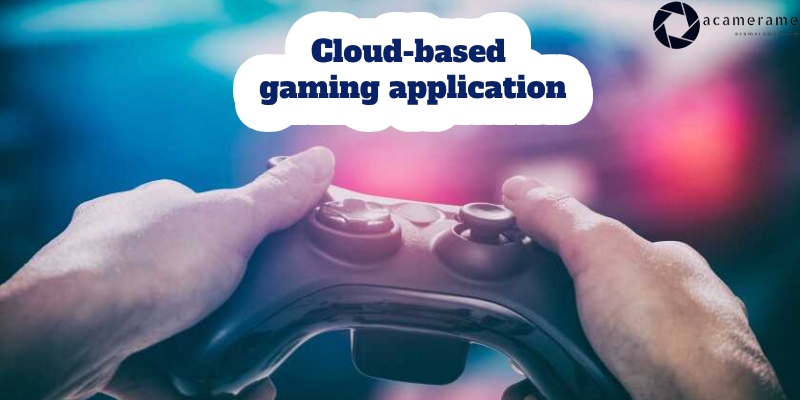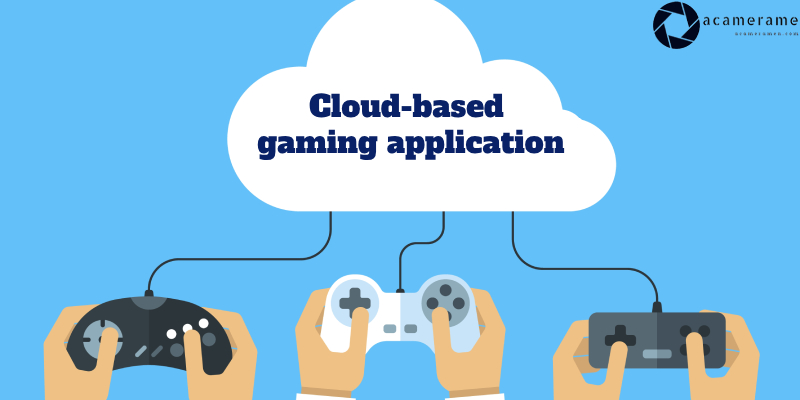Distance Converter
Cloud-based gaming application overcomes traditional limitations and creates unprecedented flexibility and convenience in gaming experiences. Let us discuss the advantages and challenges that this application brings.
What is a cloud-based gaming application?
A cloud-based gaming application is a type of video game or gaming service that leverages cloud computing infrastructure to deliver games and gaming experiences to users.
Unlike traditional gaming setups where the game is run and processed on the user’s local hardware (such as a gaming console or personal computer), cloud-based gaming offloads much of the computational workload to remote servers in data centers.

How does a cloud-based gaming application work?
A cloud-based gaming application operates on a fundamentally different model compared to traditional gaming setups. Here’s a simplified explanation of how cloud-based gaming typically works:
Game Processing in the Cloud
The game’s data, including graphics, physics, and artificial intelligence, is processed on powerful servers located in data centers.
These servers are part of the cloud infrastructure provided by the gaming service.
Streaming Technology
The processed game data is converted into a video and audio stream.
This stream is then sent over the internet to the user’s device in real-time.
User Device as a Display and Input Interface
The user’s device, such as a computer, smartphone, or smart TV, acts as a display and input interface.
The device does not need high-end hardware to run the game since the intensive processing is handled by the cloud servers.
Low-Latency Streaming
Achieving low latency is crucial for a responsive gaming experience. Any delay between the user’s input and the corresponding on-screen action can affect gameplay.
Technologies such as adaptive bitrate streaming and data compression are often employed to minimize latency.
Internet Connection Requirements
A stable and high-speed internet connection is essential for cloud gaming. The quality of the gaming experience depends on factors like latency, bandwidth, and packet loss.
Different cloud gaming platforms may have specific minimum requirements for internet speed.
User Inputs and Interactivity
User inputs (such as controller movements or keyboard commands) are transmitted back to the cloud servers.
These inputs are processed on the server side, and the corresponding changes are reflected in the video stream sent back to the user.
Dynamic Scalability
Cloud gaming services can dynamically scale their infrastructure based on demand. If there’s a surge in users, more servers can be allocated to handle the load, ensuring a consistent gaming experience.

Subscription Models and Game Libraries
Many cloud gaming services operate on a subscription model. Users pay a monthly fee for access to a library of games hosted on the cloud servers.
This eliminates the need for users to download, install, or update games on their local devices.
Cross-Platform Play
Since the game processing is centralized in the cloud, cloud gaming often supports cross-platform play. Users on different devices can play the same game seamlessly.
Security Measures
Cloud gaming services implement security measures to protect against unauthorized access and ensure the integrity of the gaming experience.
The advantages of cloud-based gaming applications
Cloud-based gaming applications offer several advantages that contribute to a more flexible, accessible, and scalable gaming experience. Here are some key advantages:
Device Agnosticism
Users can play games on a wide range of devices, including smartphones, tablets, smart TVs, and low-end computers. The only requirement is a device capable of running the streaming client and a reliable internet connection.
No Need for High-End Hardware
Since the game processing is handled by remote servers in the cloud, users do not need powerful gaming hardware. This lowers the barrier to entry for gaming, making it more accessible to a broader audience.
Instant Access to Games
Games can be played almost instantly without the need for lengthy downloads or installations. This is particularly advantageous for users who want to try out new games without waiting.
Scalability
Cloud gaming services can easily scale to accommodate a large number of users without requiring individual hardware upgrades. This scalability is achieved by adding more servers to the cloud infrastructure.
Cross-Platform Play
Cloud gaming often supports cross-platform play, allowing users on different devices to play together seamlessly. The game processing being centralized in the cloud facilitates a unified gaming experience.
Lower Cost of Entry
Users can access a library of games through subscription models, eliminating the need to purchase expensive gaming hardware. This can make gaming more cost-effective for users who don’t want to invest in high-end consoles or gaming PCs.
Frequent Updates and Patches
Games are maintained and updated on the cloud servers, ensuring that users always have access to the latest versions without having to manually download and install updates.
Reduced Storage Requirements
Users do not need to worry about limited storage space on their devices since the game data is stored and processed in the cloud. This is particularly beneficial for users with devices with limited storage capacity.
Enhanced Mobility
Cloud-based gaming allows users to continue their gaming sessions seamlessly across different devices. For example, a user can start playing a game on a computer and continue the same session on a smartphone or tablet.
Global Accessibility
Users can access their games from anywhere with an internet connection, making it easier for gamers to play while traveling or in locations where setting up traditional gaming hardware is not feasible.

Environmentally Friendly
Cloud-based gaming can be more environmentally friendly compared to traditional gaming setups, as it reduces the need for manufacturing and disposing of physical gaming hardware.
Trial and Rental Options
Some cloud gaming platforms offer trial periods or rental options for specific games, allowing users to explore a game before committing to a purchase.
The challenge of cloud-based gaming applications
While cloud-based gaming applications offer numerous advantages, they also face several challenges that impact the user experience and the overall success of the technology. Here are some key challenges associated with cloud-based gaming applications:
Latency
Latency, or the delay between a user’s input and the corresponding on-screen action, is a critical challenge in cloud gaming. High latency can lead to a laggy and less responsive gaming experience, affecting gameplay, especially in fast-paced and competitive games.
Internet Speed and Stability
Cloud gaming relies heavily on a stable and high-speed internet connection. In regions with slow or unreliable internet, users may experience disruptions, buffering, or degraded video quality, impacting the overall gaming experience.
Data Consumption
Streaming high-quality game content requires significant data bandwidth. This can lead to high data consumption, potentially resulting in additional costs for users with data caps or limited internet plans.
Quality of Service (QoS)
The quality of service can vary based on the user’s geographical location, proximity to data centers, and the overall internet infrastructure in a given region. Users in remote areas may experience lower-quality service compared to those in urban areas.
Device Compatibility
While cloud gaming aims to be device-agnostic, not all devices may provide an optimal experience. Older devices or those with limited processing power may struggle to handle high-quality game streaming, affecting performance.
Security Concerns
Storing and processing game data in the cloud raises security concerns, including the potential for unauthorized access, data breaches, and issues related to user privacy. Cloud gaming services must implement robust security measures to address these concerns.
Dependency on Service Providers
Users are reliant on the infrastructure and service quality provided by the cloud gaming platform. If the service experiences downtime or technical issues, users may be unable to access their games.
Cost Considerations
While cloud gaming eliminates the need for expensive gaming hardware, subscription costs and potential data overage charges could offset some of the cost savings, particularly for users with limited internet plans.
Limited Game Libraries
The availability of games on cloud gaming platforms may be limited compared to traditional gaming libraries. Users might not find all their favorite titles or may need to wait for new releases to become available on the platform.
Regulatory and Legal Challenges
Different regions may have varying regulations regarding cloud services, data storage, and online gaming. Navigating these regulatory landscapes can pose challenges for cloud gaming providers.

Competition and market fragmentation
The cloud gaming market is becoming increasingly competitive, with various providers offering different services and game libraries. This can lead to fragmentation, potentially requiring users to subscribe to multiple services to access their desired games.
Educating and Convincing Consumers
Convincing traditional gamers to adopt cloud-based gaming requires overcoming skepticism and educating users about the benefits and reliability of the technology. Resistance to change and the attachment to physical hardware can be barriers to adoption.
In conclusion
Cloud-based gaming application is an important milestone marking innovation in the world of gaming. With the power of the cloud, players not only receive a top-notch gaming experience but also open up a series of unexpected conveniences and benefits.